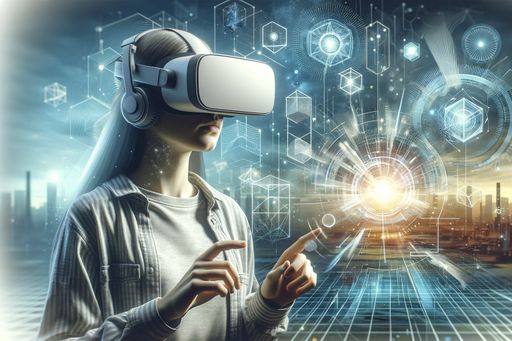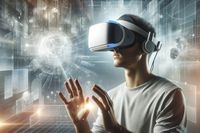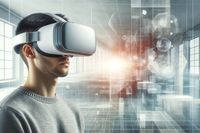Apple Vision Pro: Implications for Scientists
Scientists are examining the research implications of Apple's virtual-reality headset, the Vision Pro, which offers high precision and advanced features.

The Potential for Research
Apple's Vision Pro headset, released only two weeks ago, has caught the attention of scientists who see its potential for advancing research. The high precision of the headset opens up possibilities for research tasks and analogue activities such as surgery. However, this also raises questions about the impact on human behavior and behavior research.
Ken Pfeuffer, a human-computer interaction researcher, is particularly interested in studying how the Vision Pro uses a 'gaze and pinch' feature for virtual navigation. He designed a similar feature in 2017 and is excited to see how Apple has implemented it.
The Vision Pro has been praised as the most advanced VR and augmented reality headset ever made. Its high-performance features, including realistic 'passthrough' and advanced eye-tracking, make it unique compared to other headsets on the market.
Medical Applications
The Vision Pro's high performance also shows promise for medical applications. Medical researchers at Essen University Hospital are exploring how the advanced eye-tracking technology in the headset can be used to detect conditions such as vertigo, stroke, and dementia. They believe that the quality of the sensor readings is high enough to utilize it for medical tasks.
Future versions of the Vision Pro are expected to be smaller and more comfortable, potentially mimicking a pair of glasses. This could enable surgeons, for example, to wear the headset and have an overlay of information during operations, providing guidance and improving precision.
The potential for medical applications is significant, and researchers are eager to delve deeper into the possibilities offered by the Vision Pro headset.
Implications for Human Behavior
As spatial computing headsets like the Vision Pro become more widespread, they could have an impact on human behavior and perception. Apple's CEO, Tim Cook, stated that the Vision Pro is the 'beginning of a new era for computing' where the digital and physical worlds are blended together.
While this integration offers potential shortcuts for improvement in various areas, such as sharing information and knowledge, there are concerns about how constant exposure to virtual images may alter behavior and perception. The impact on 3D vision, for example, is an area that researchers are particularly interested in studying.
Furthermore, the manipulation of virtual projections through AI raises concerns about the authenticity of perceived reality. Researchers caution that users may think they are seeing the world when they are actually seeing a manipulated projection.


